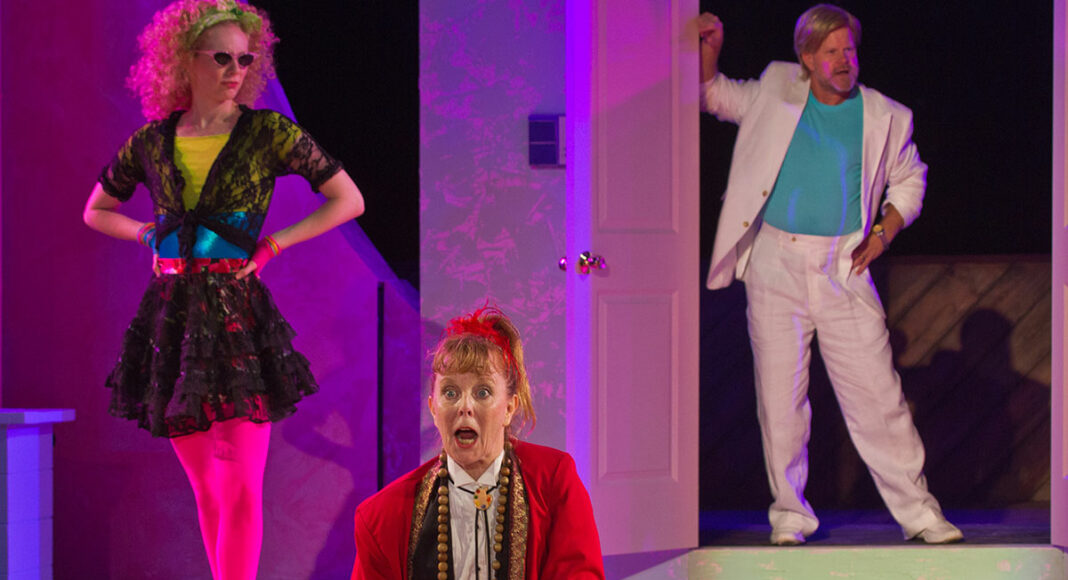The coronavirus pandemic has devastated our local arts community, a reality that hit home particularly hard when Santa Cruz Shakespeare announced on April 10 that it was cancelling its summer season, which had been set to begin July 7 with productions of The Tempest and Twelfth Night, along with Melissa Rain Anderson’s A Flea in Her Ear. Artistic Director Mike Ryan spoke to GT about what went into the decision and what the acclaimed organization has planned.
When did you first realize cancelling the season might be necessary, what factors did you consider, and what sealed the decision?
MIKE RYAN: When the shelter-in-place order came, we started to wonder how long it might last. As we started to hear stories about countries that were ahead of us in terms of the trajectory with the virus and how long they were sheltering, it became apparent that it might be necessary to shutter the season. So we did a couple of things. First, we looked at what our deadline was in terms of expenses for producing the season—in other words, at what point we were going to be investing so much money that it would be catastrophic to close the season. We came up with a date in April. Then we started looking at different financial models. We had our existing budget for the season, and we took a look at what would happen if we continued forward with that budget, but only received 70% of our contributed and earned income for the year—meaning that donations would fall off by 30% due to the stock market crash, and another 30% of people who would normally buy tickets wouldn’t come out because they were concerned about health issues. That was a pretty ugly picture. So then we looked at what would happen if we reduced the season; did a shorter season with only two shows and then an even shorter season with only one show. Again, projecting 70% earned and contributed income for those models as well. The last model we looked at was what would happen if we cancelled the season completely. What quickly became clear was that of all those scenarios, the one that was least damaging to the company was cancelling the season completely.
What was it like emotionally to realize that was the decision you had to make, especially after the company has been building each year?
It was devastating, very simply. This is what a year of work culminates in for me. It takes long, 50-hours weeks of work just to produce those shows in the summertime. Everything from fundraising to arranging the artists and cutting the plays and all of the things that we do. All of that labor was lost, essentially. A year’s worth of work was gone in a puff of smoke. There are so many people who work tirelessly through the year to make the festival happen every summer, and it’s important to acknowledge the loss and grief they feel at this cancellation. Additionally, scores of artists and artisans lost work, both in our community and beyond. Their generosity and grace in the face of this news has been humbling and inspiring.
You mentioned in your statement that another disappointment was that this season would have had a lot of thematic resonance with our current situation. How so?
Well, we definitely weren’t thinking of COVID when we put together the season, but these plays are all about how we get past disaster. And how we get past anger. That’s a huge part of The Tempest, which was the show that I was going to direct this year. To me that’s a story about how we look at the choice between anger and life, and how we find our way to choosing life instead of vengeance. And there’s so much anger in the country right now, whether it stems from divisive politics or disenfranchisement. And then of course with the advent of the virus, it suddenly looked like a good season to produce again in 2021, because it really is about how we deal with these moments of being shipwrecked in our lives. Which is certainly how I’m feeling right now. Figuring out how we move on from that, and the parts of it that we will always carry with us.
Might there be some kind of winter show this year?
We’re looking at a bunch of different things right now, one of them being how we’re going to offer some programming between now and next summer. Until we know that we can safely gather again, all of this is speculative.
What about virtual performances?
We’re going to do a few virtual things. I think we can do some fun things to explore some of Shakespeare’s plays that I will never be able to explore as an artistic director on our main stage, because they are not good box-office sense. I think we’re going to do a multi-part series this summer when we would normally be doing the festival where we’re going to read through all three parts of Henry VI. No festival can really produce them all in the same season, if they can produce them at all. And we’ll conclude it with Richard III, which is the final part of that tetralogy.
How can people help SCS out right now?
Even with cancelling production, we’re still staring down a $260,000 loss for the company. Certainly the best way they can help us is to donate. I know it’s really hard right now. It’s something we say often in the theater, but it’s so true—as trite as it may sound—every little bit helps.
To donate, go to santacruzshakespeare.org.













